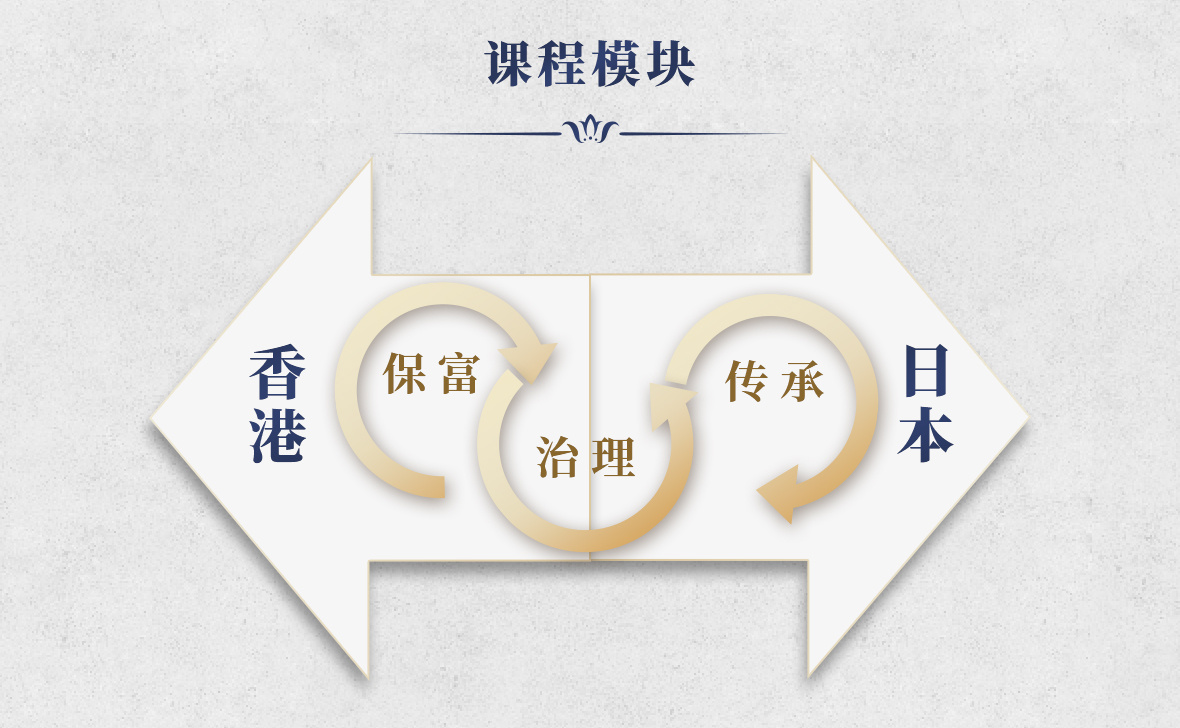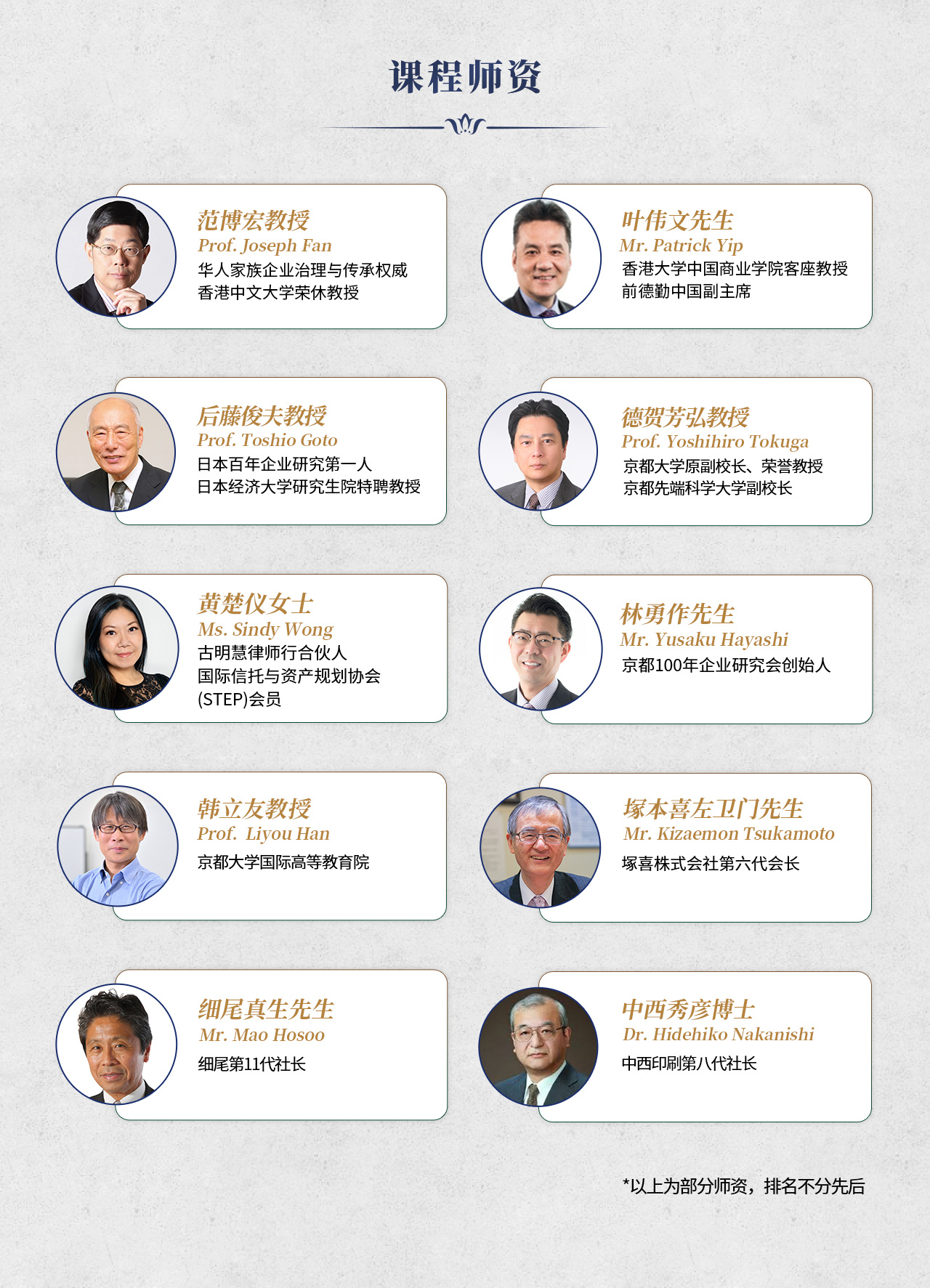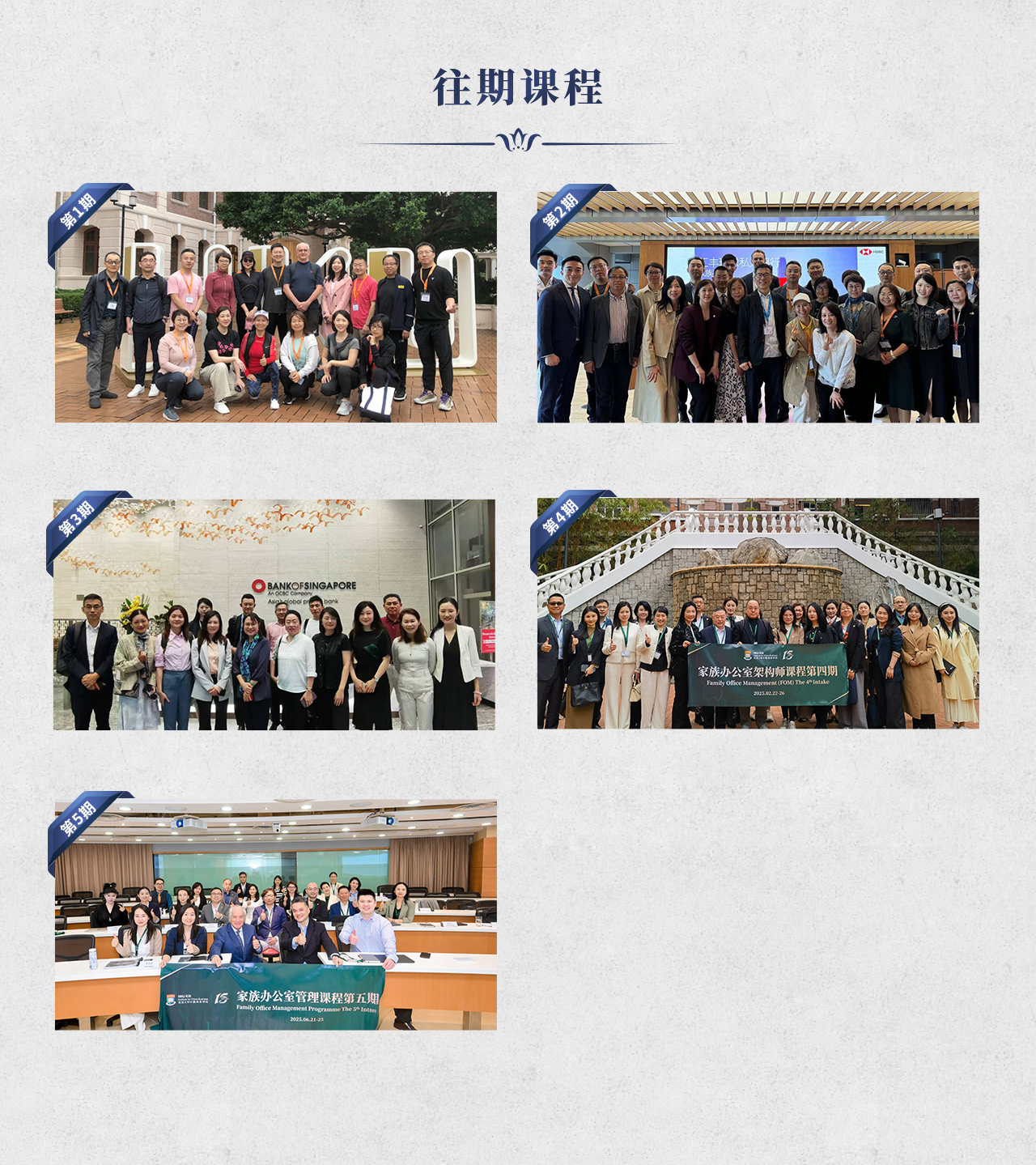Quick Links:
Background |
| Riding the Trend: The Rise and Professional Advancement of Family Offices As the ultra-high-net-worth group’s demand for wealth management, family inheritance, and governance grows increasingly, family offices are not only embracing a historic window of expansion but also accelerating their evolution toward a more refined, professional, and advanced model. Breaking Through the Dilemma: Inheritance Challenges and Chinese Ways First-generation entrepreneurs are about to pass the baton. Wealth inheritance must go with values, governance and cultural heritage. Breaking the cycle of wealth not lasting beyond three generations has become the key issue for Chinese family offices. Learning from Others: Global Wisdom and Experience Hong Kong, as an international hub for family wealth inheritance, has global management tools and practical experience. Japan, home to the world's largest number of century-old family businesses, offers practical wisdom in preserving spiritual continuity and institutional resilience. Together, their strengths will build a new growth engine for Chinese family wealth inheritance. |
Course Highlights |
| 1. Course Design Leveraging the strengths of Hong Kong and Japan, this course combines cross-border wealth inheritance tools with the wisdom of century-old family businesses. It guides participants to explore "Chinese-style" innovative family offices with international vision and local characteristics, covering topics such as family values, corporate governance, and asset allocation. 2. Faculty Arrangement Taught jointly by academic authorities and practical experts, the course blends in-depth theory with real-world experience sharing. 3. Teaching Features Multiple learning methods are used, including lectures, visits to government agencies and enterprises, and discussions with entrepreneurs. 4. Academic Recognition Upon completing the course and passing the assessment, participants will receive an official statement of achievement issued by HKU ICB |
Suitable For |
| 1. Founders and heirs of family businesses, as well as other family members who may manage family wealth 2. Professionals deeply involved in high-end family wealth management (e.g., family business CFOs, family lawyers) 3. Leaders of institutions that provide family office services to ultra-high-net-worth families, such as those from commercial banks, trust companies, investment firms and law firms. |
Programme Module |
 |

Corporate Visit
Hong Kong Investment Promotion Agency (InvestHK)
Hong Kong Investment Promotion Agency is part of the Hong Kong Special Administrative Region Government. It encourages Mainland companies, small and medium businesses (SMEs) and international corporations to set up or grow their business in Hong Kong and use Hong Kong as their main base. It gives investors free professional advice and support – from planning their business to putting plans into action and expanding.
Kyoto Nanzenji Garden Ryokan Yachiyo
The history of Nanzenji Yachiyo’s restaurant dates back to 1588. Nestled within the grounds of Nanzen-ji Temple in Kyoto, it has a history of nearly 500 years. Blending sukiya-style architecture, Kyoto cuisine and gardens, it centers on the concept of "long-termism" — upholding traditional hospitality while incorporating modern amenities. Guided by a philosophy of sustainable operation, it stands as a model of Kyoto’s century-old businesses.
Tsukaki Group
Tsukaki Group was founded in 1867. With a 158-year history and six generations of family leadership, it is a classic example for studying family business inheritance and long-lived companies. It also keeps Japan’s traditional business values alive.
Using a diversified business strategy and the "Sampo-Yoshii" (Three-Way Benefit) management approach, Tsukaki Shoji has steadily dealt with economic ups and downs and risks to achieve steady growth.
Butsugen-ji Temple
Butsugen-ji Temple founded in the early Edo period (around 1600), has a history of over 400 years. It is a historic temple in Kyoto protected by the city government, with its legacy passed down through 14 generations. The temple offers visitors Buddhist practices like zazen (seated meditation), chanting sutras, and Buddha statue painting. It also allows visitors to explore how Buddhist teachings influence business operations, from the perspective of Japanese Buddhist philosophy.
Hosoo Co., Ltd.
Founded in 1688, Hosoo started as a craftsman's workshop specializing in Nishijin textile. With a heritage spanning over 330 years, it has broken the boundaries of traditional kimono textiles. By integrating traditional weaving techniques with contemporary art and technology, its products now supply luxury brands such as Hermès, Dior and Chanel, as well as top-tier hotels. It has grown into a global high-end textile enterprise, embracing a new lease of life.
The final itinerary may be changed due to actual conditions. HKU ICB reserves the right to adjust the visiting corporates and lecturers.


Statement of AchievementUpon completion of the course, with an attendance rate of 80% or above and passing the assessment, the participant will be awarded a Statement of Achievement issued by HKU ICB. |
Application Guidelines |
Step 1 Application Preparation Step 3 Review Step 4 Payment and Registration For further information, please contact our learning centres in Beijing, Shanghai, Shenzhen, Guangzhou, and Chengdu. |
Fees and Charges
| Tuition fee: | HKD 108,000 |
| Meal & Travel Expenses: | Students are required to arrange on their own: 1. Transportation to and from Hong Kong, transportation to and from Japan, travel documents, and visas 2. Meals and accommodation in Hong Kong 3. Dinners in Japan |


